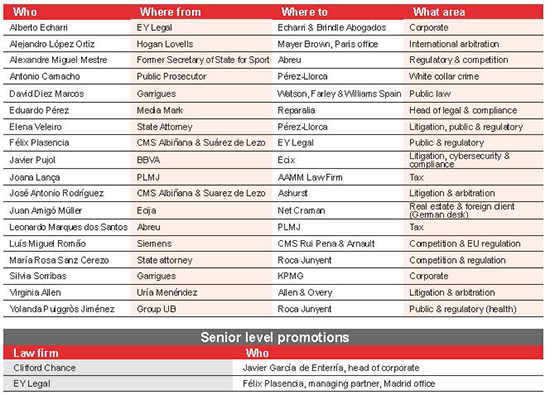Measuring the success of your in-house legal team
Quantitative data and customer satisfaction surveys can help improve the efficiency and productivity of in-house legal departments, but you must use technology wisely
Many clients are familiar with the concept of using metrics to measure the performance of external counsel but the introspective analysis of their own in-house legal teams has been less of a priority. How best should companies measure the success of their lawyers and, what steps can they take to reduce costs, enhance value and increase productivity and efficiency?
These issues were addressed by experts at the recent Iberian Lawyer In-House Club Masterclass hosted by IE Law School´s Lawyers´Management Program. Attendees heard how the core challenge of measuring the performance of in-house lawyers had parallels with the approach to assessing productivity adopted by Albert John Dunlap, the notorious US businessman known as “Chainsaw Al” for his ruthless approach to efficiency.
“I always ask a general counsel what would they say to Chainsaw Al if he was running the business and they met in a lift,” said Moray McLaren, director at Redstone Consultants. “Al would probably ask two questions: what is your name and why does the business need you?”
In-house lawyers may find the first and second questions simple enough to answer but, actually measuring performance and trying to improve internal systems is where the issue can get complicated. Event attendees heard a mixture of qualitative and quantitative metrics are needed to assess performance and that better use of technology can improve effectiveness.
Eduardo Ruiz Montoya, associate general counsel, Southern Europe at Hewlett-Packard (HP), told the event that quantitative data is a good measurement tool. He said HP keeps quarterly metrics of its legal team in order to monitor performance and identify where improvements can be made. “Measuring the in-house function requires data-driven decisions and not just intuition,” he said. “Companies must keep track of where personnel need to be deployed and where the legal spend should go but that must be based on facts.”
Lawyers should be business advisers
Ruiz Montoya said he believes an important part of the success of in-house lawyers is also ensuring that they go beyond their traditional remit and consider the wider value they can offer. “At HP we ask lawyers to be lawyers but also business advisers,” he said. “If lawyers are involved in the day-to-day business and strategic decision-making then they are in a much better position to support the success of the company. It is important that their perspectives are not just legal perspectives but commercial perspectives.”
Sandra Martín Morán, general counsel at Chemo, explained that her company undertakes internal customer satisfaction surveys to provide feedback on the in-house team and assess how it is working in, and for, the business. “We ask people within the business how they view the legal services offered in-house and the overall performance, in a similar way to how we would be asked about external legal providers. I tend to undertake these surveys on an annual basis amongst business colleagues.”
The aim of such a process is to find ways to improve the functioning of a team and engage lawyers with the wider business. The objective is to ensure corporate counsel are more engrained in the business rather than being a distant support service.
The correct use of technology
Metrics and feedback must be complemented with hands-on solutions to bolster performance. Attendees heard that technology has a large role to play. However, Carlos García-Egocheaga, managing director at Tikit Spain, warned that technology can be a hindrance, rather than a help, to corporate counsel if it is not used properly.
“Technology, and the use of it, needs to be simple and not involve considerably more work for lawyers,” he explained. “Efficiencies are found in simplifying work, whether that is sharing documents or answering email – all that helps automate other processes within the department.” García-Egocheaga expanded on the point by saying the right technology can, for instance, enable all legal documents – both current and historic – in a department to have the correct metadata so each document can be properly indexed and easily obtainable.
In-house lawyers should act like law firms
Such innovations save time and ultimately money, thus enhancing the productivity of in-house legal teams. Stephen Murphy, EMEA director at HP Autonomy, said legal departments do not want to “re-invent the wheel” but rather be able to find and utilise solutions that have been used before.
He added that reducing risk was also an important issue, citing document management as an example: “Companies need to know who can access a document and who can’t access a document as well as how for long people have accessed documents. In general terms, in-house lawyers should be utilising the same technology as external law firms, they need to act like a law firm.”











